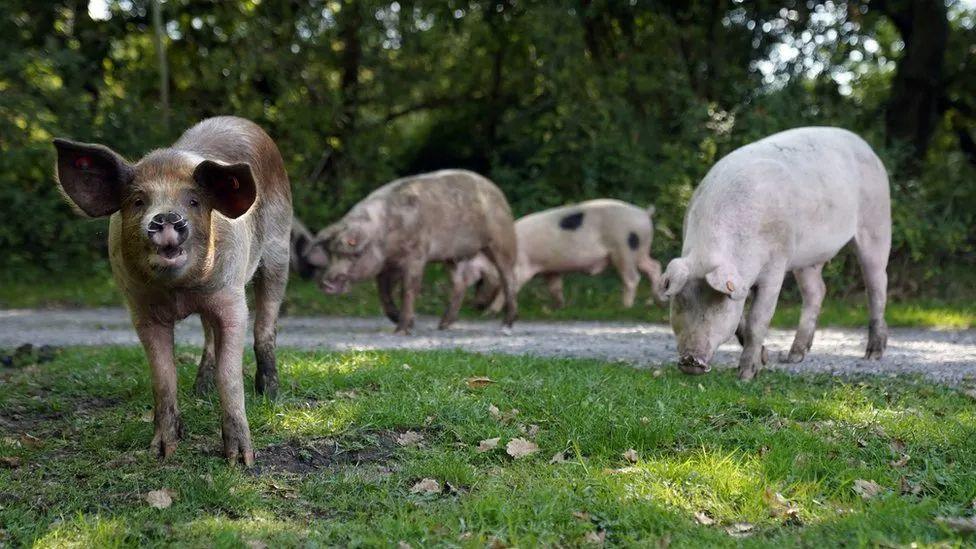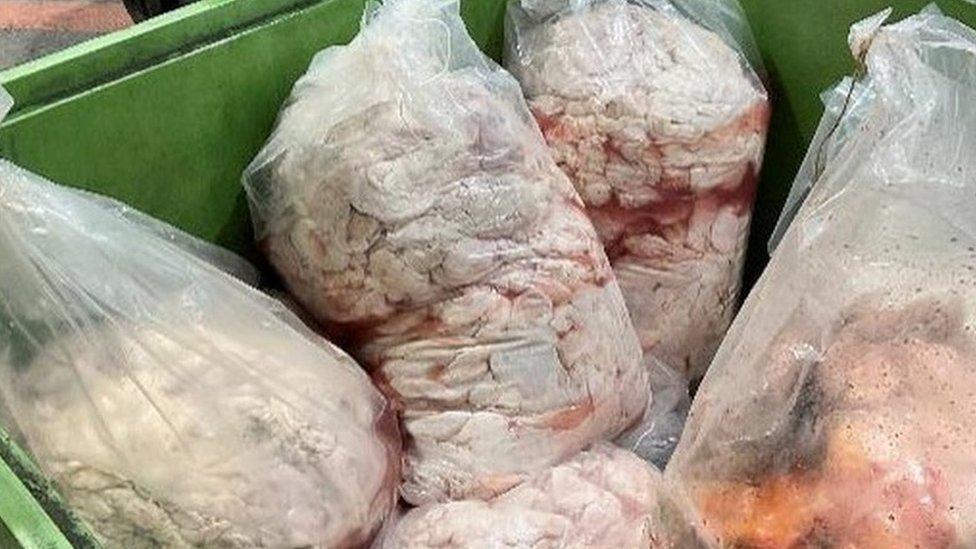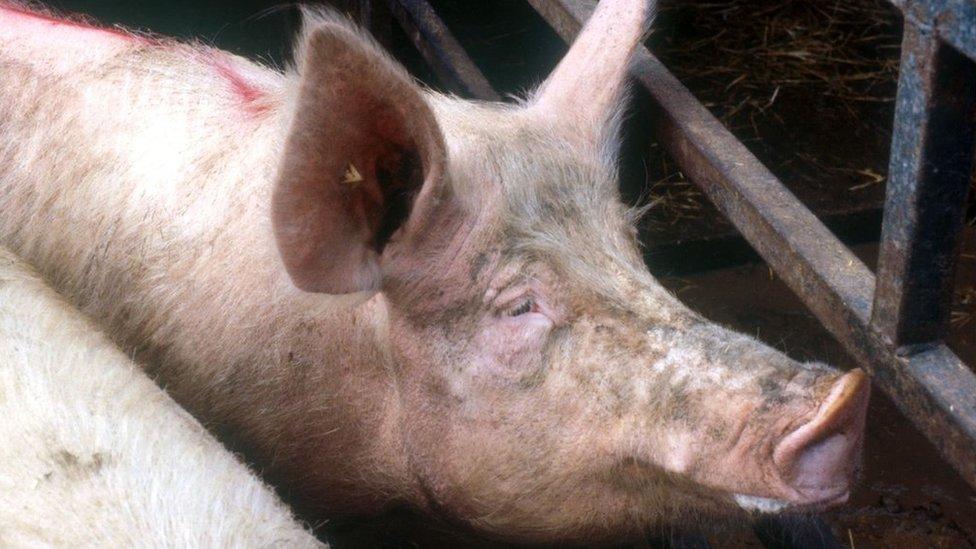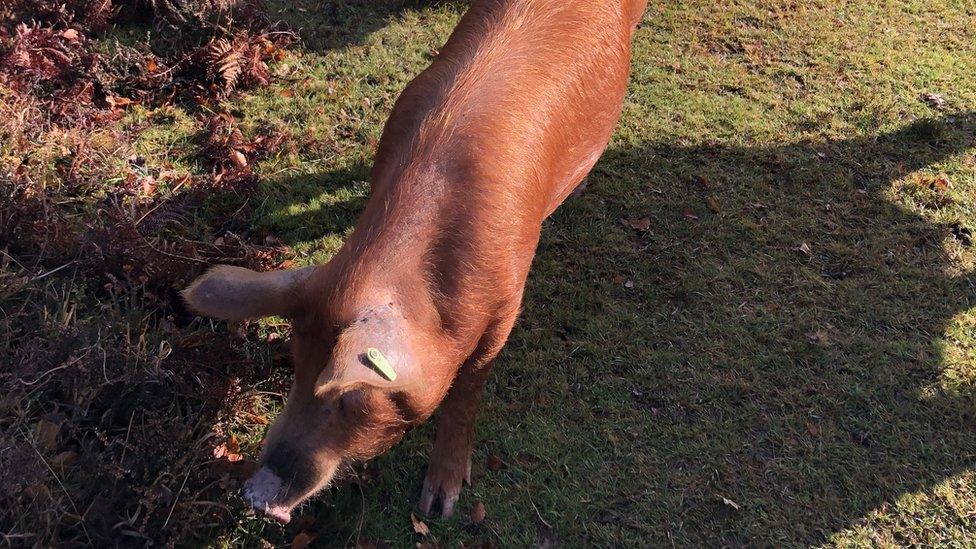Pannage warning over African Swine Fever

Pigs are released in the open forest each year during pannage season
- Published
The annual pannage season in the New Forest is set to begin, with a warning to help prevent the possible spread of African Swine Fever (ASF) among the pigs.
The animals are traditionally sent to the open forest in autumn to eat acorns, which are poisonous to ponies and cattle.
This year's season is due to begin on Monday and end on 22 November but it can be extended.
Forestry officials warned against feeding the pigs or dropping food in a bid to minimise the risk of ASF spreading in the UK.
The New Forest's Commoners - those who occupy land or property with ancient rights attached - are permitted to release pigs into the forest, during pannage.
Acorns are toxic to most livestock but not to pigs, whose so-called pannage meat is renowned because of the animals' diet and the amount of exercise they get before slaughter.
In a statement announcing this year's dates, Forestry England and the Verderers, who administer the Commoners' rights, said: "A few hundred pigs trot around the New Forest every autumn and do an important job of eating many of the acorns that fall at this time of year so it’s vital that people don’t feed the pigs or drop human food.
"There is a risk of African Swine Fever reaching the UK and it can be spread to pigs in infected meat."
The disease, which does not affect humans, is currently spreading through mainland Europe and there is concern about its potential arrival in the UK through non-commercial imports of pork.
Restrictions on travellers bringing pork products into Great Britain have been in place to protect the pig industry from ASF since 2022.
The latest update from the Department for Environment, Food & Rural Affairs, external states: "All travellers are strongly advised to avoid bringing, buying, ordering on the internet, or requesting any pork products – for example, fresh or frozen meat, dried or cured meats, sausages, salamis, or pâté – back to the UK from affected parts of Europe."
Get in touch
Do you have a story BBC Hampshire & Isle of Wight should cover?
You can follow BBC Hampshire & Isle of Wight on Facebook, external, X (Twitter), external, or Instagram, external.
See also
- Published16 January 2024

- Published1 September 2022

- Published12 November 2020
